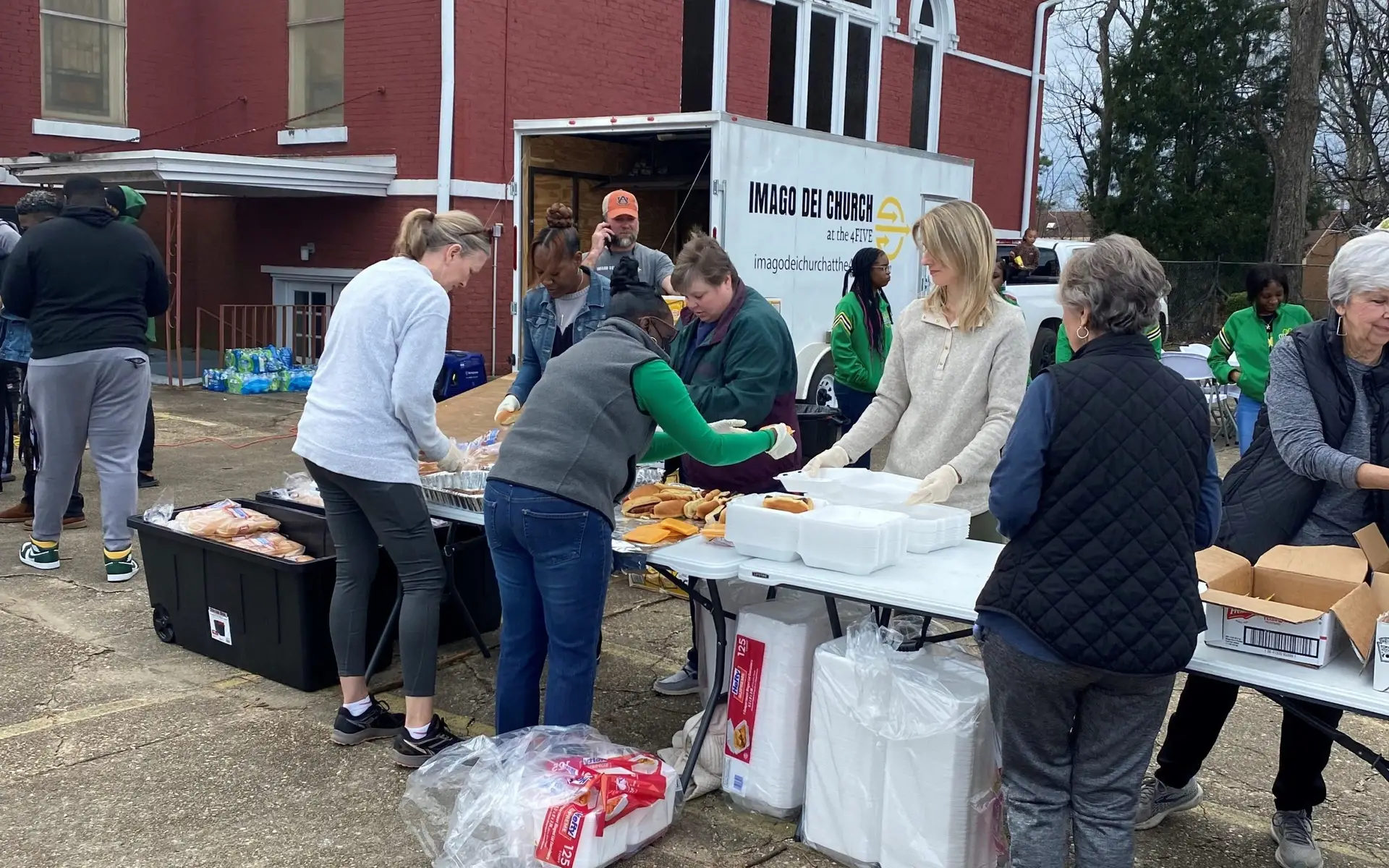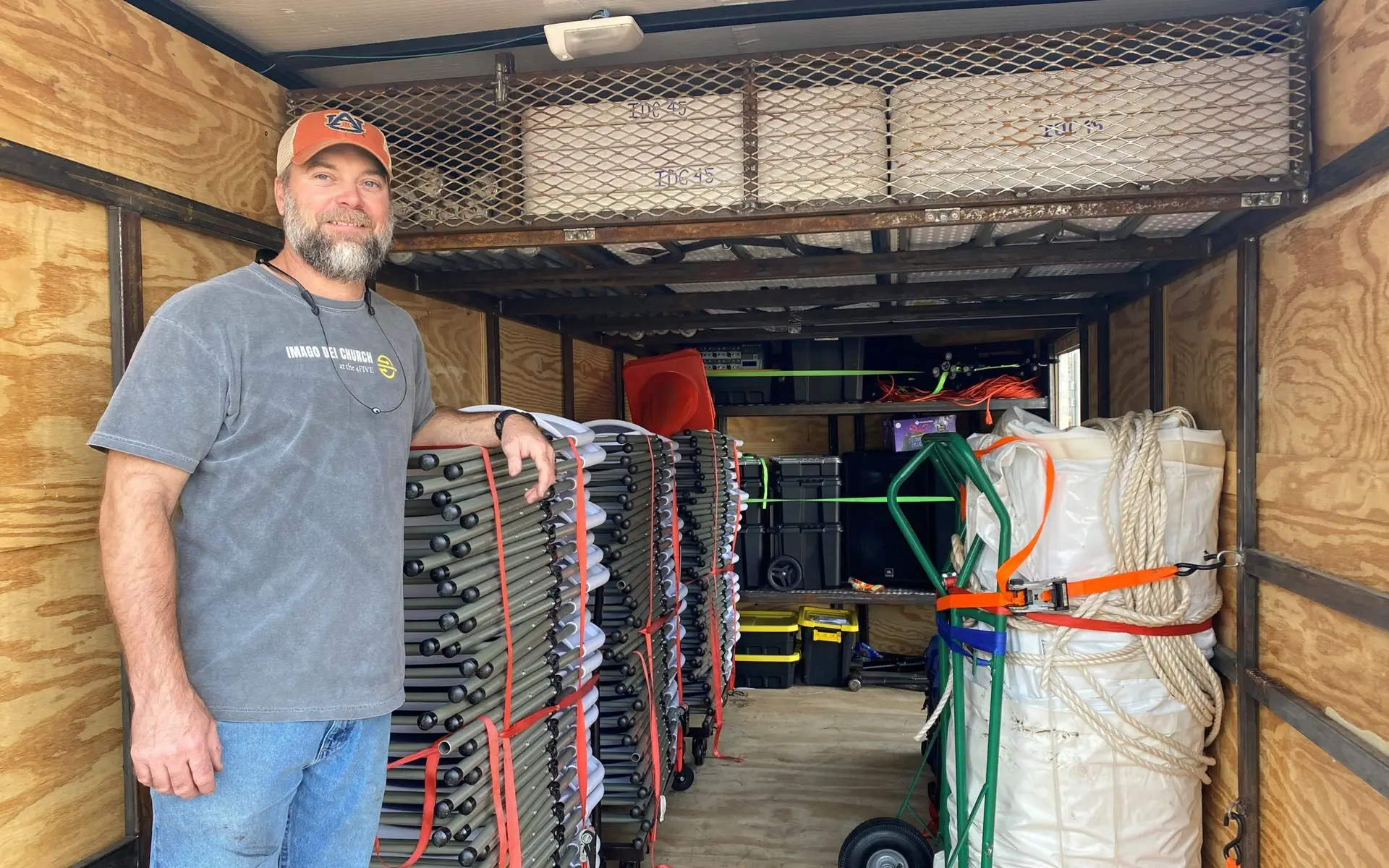In the 1950s, there was a Gospel movement in Alabama and many community churches were planted. Baptist evangelists opened up revival meetings in new areas, and churches were started.
New first-generation believers began to be discipled in the Word on Wednesday and Sunday nights. At least one night a week was committed to door-to-door outreach and evangelism in the neighborhood. Both my parents and in-laws were the fruit of a vibrant and evangelistically-focused church.
In Acts 2:46-47 (CSB), as the new church grew and exploded, Luke notes: “Every day they devoted themselves to meeting together in the temple, and broke bread from house to house. They ate their food with joyful and sincere hearts, praising God and enjoying the favor of all the people. Every day the Lord added to their number those who were being saved.”
The everyday practices of the new followers of Christ and community life in Acts grew the new believers, and their transformed lives and witness had people getting saved every day. The connectivity between the Gospel community and their context had a great impact. They met in the temple but also in homes. Their witness and change brought favor from the greater community.
Today, our communities and context require us to engage anew our communities with transformed lives that will be an affirmation for our words that must accompany our actions. Events and programs themselves do not change communities, but transformed believers who are living out the Gospel and sharing their faith will.
In Alabama church planting, we are holding to a reality that we are called to plant the Gospel, not plant a church organization. It is the Gospel that changes lives, allows for discipleship and true community to develop.
How do we plant the Gospel? In all ways.
The Gospel, as Paul said in Romans 1:16, is the power of God for salvation, carried by believers who love the Lord and love the people.
How we see a healthy church in every community and people is by:
Healthy equipped leaders seeking Gospel transformation in sustainable models with collaboration and multiplication.
It is that intentional seeking and serving our lost communities with the Gospel that change and transformation will happen to individuals, families and communities. Church plants must have an outward focus in order to establish a community of faith.
In normal times, a church will have 10-30% transfer or move away. For a church to just break even, what leaves must be replaced. But truthfully that should not be the focus and paradigm.
The question should be: how will all of our community hear and respond to the good news over the next couple of years? When new people arrive in our area, do they get welcomed by a loving faith family or no one?
Recently, I had the privilege of visiting Selma, post a tornado outreach. A church planter, Davey Lyon was using his portable church trailer and grill to serve those impacted by this disaster. He actually brought folks from his community and church to serve the needs in Selma. People were prayed for and God conversations took place in the midst of loving and caring for many.
Our church planting network is focused on the lost, caring for their Gospel needs and drawing together a faith community to live out the Great Commission (Matthew 28:19-20) and the Great Commandment (John 13:34-35).
May all the communities in Alabama have a clear Gospel witness and loving healthy churches where this next generation can be discipled. Let’s pray for laborers together.
State Missionary Brian Harper serves as the State Board of Missions’ lead church planting strategist. He may be contacted at 1-800-264-1225, ext. 2332, or (334) 613-2332, [email protected].



